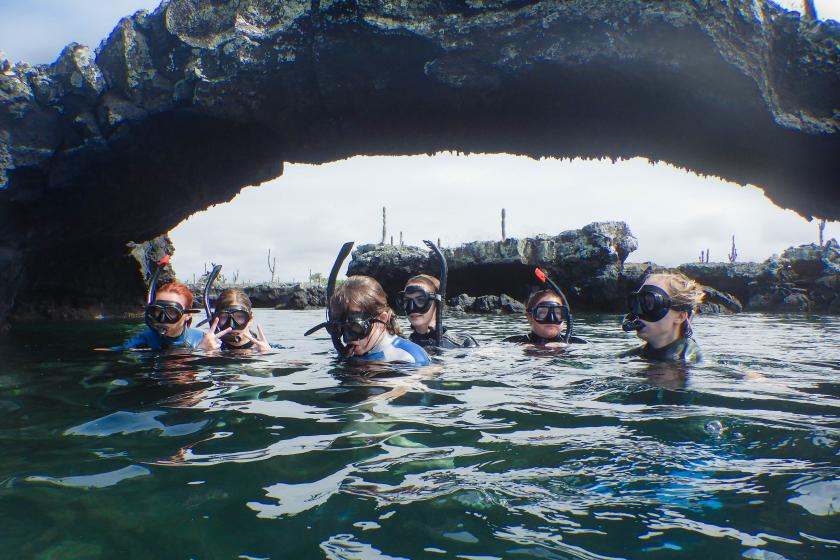Course Details
Syllabus
Program dates
-
Travel dates
-
Course credits
HNRS 212, HNRS 105
Total credits: 9
Prerequisites
HNRS104, Admitted to the WWU Honors College
The WWU Honors College offers a global learning course that allows Honors students to explore Ecuador while earning college credits during the summer. It is an exploration of the rich mosaic of the history, politics, literature, culture, and natural history of this nation.
The Honors in Ecuador program offers students the chance to study the natural and human history of Ecuador, taking into account the region’s rich biodiversity and its long history of human civilizations. Coursework will be in English, and the two courses will explore how nature and culture interact in the Andes, the Amazon basin, and the Galapagos.
The 2024 version of this trip counts towards Honors 105 AND Honors 212 (Geology Colloquium) and will be led by Dr. Scott Linneman (Honors and Geology) and Amy Carbajal (Modern and Classical Languages).
Program Highlights
While abroad, students will travel through the Sierra highlands, Andes mountains, the Amazon rainforest, and the final week in the Galapagos. Visits include museums, one of Latin America’s most vibrant traditional markets, rose and cacao plantations, pre-Incan and Incan ruins, and a lesson in salsa dancing. Hike and explore the geology of Ecuador: impressive volcanoes and national parks from the highlands to the Amazon; explore and snorkel in the one-of-a-kind Galapagos habitat.
We will spend time in historic cities with colonial-era architecture and modern infrastructure, as well as journey from the Andean highlands down to the Amazon basin before traveling to the Galapagos Islands. We’ll explore cloud forests, visit national parks, learn from indigenous communities, visit the Charles Darwin Research Station, go tubing in the Amazon basin and snorkeling in the Galapagos, and learn from English-speaking guides throughout Ecuador.
Image

Expectations of Participants
Activities include visits to museums and cultural sites, with visits planned to natural areas (forests, volcanoes, national parks). Bus travel will be frequent between sites, as will boat travel in the Galapagos. Hikes will be accessible to moderately active people with no special experience or preparation, although participants should expect an adjustment period to the high elevation. With or without reasonable accommodations, participants should be able to: ride in a moving vehicle (bus, boat), hike moderate distances, and stand for prolonged periods. We plan to snorkel in the Galapagos.
Refrigeration is available in housing.
Students must work with the WWU Disability Access Center, Wilson Library 170, (360) 650-3083, drs@wwu.edu. For service eligibility, a complete diagnostic description from a qualified professional is required. Specific accommodations or services are determined on an individual basis and are modified to meet the unique needs of the student and their academic experience. Accommodation policies and procedures are highly individualized and centered on self-advocacy, realistic self-appraisal, and student growth. Each quarter, students need to activate their approved accommodations for each class. Students choose which of their approved accommodations they want to activate for each class.
We strongly recommend that all students traveling on this Global Learning Program are fully vaccinated against COVID-19 to maximize the safety of the student cohort. Staying up to date with COVID-19 vaccines remains the most important step to protect yourself and your community.
Participants are expected to abide by all attendance policies of the program, including those for classes and excursions, and to adhere to the program schedule. Since the programs are academic in nature, parents, friends, partners, and families are not permitted on any part of the Global Learning Program. Personal travel must be outside of the course dates and not conflict with coursework or excursion schedules. Travel plans should be vetted by faculty beforehand to ensure personal plans do not interfere with meeting the learning objectives of the course.
